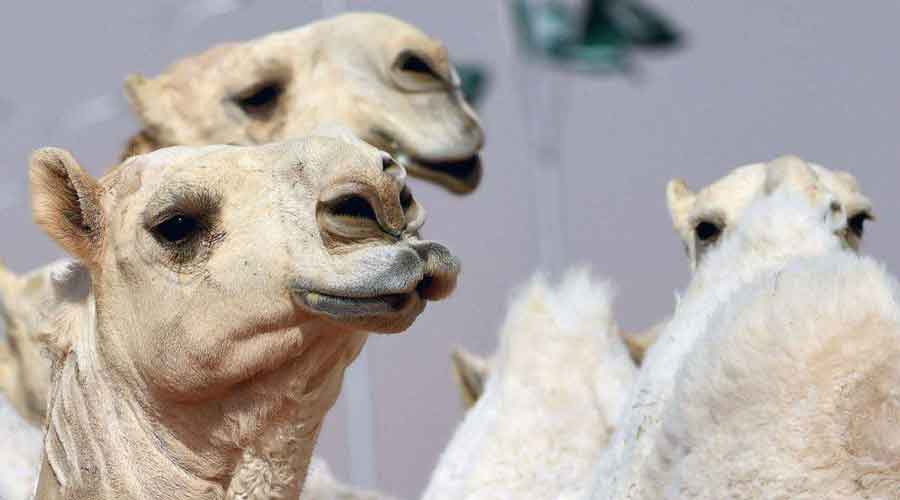Ugly practice
Sir — Strange are the times we live in. Such is the human obsession with the idea of beauty that even animals are not spared from its tyrannies. Recently, more than 40 camels were disqualified from a Saudi Arabian beauty pageant for the quadrupeds owing to facelifts and the use of Botox injections. The animals are put through miseries like being pumped full of hormones and parts of their body being tied up with rubber bands just to appease human notions of beauty. Evidently, setting aside age-old ideas is not a part of the modernization project underway in this oil-rich monarchy.
Lolita Sarkar,
Calcutta
FIRST BUNCH: Class dismissed
Sir — Anup Sinha’s article, “Stale space” (Dec 10), vividly outlines the ambit of classroom teaching. Sinha has always been an accomplished educationist and I was delighted that he compared classroom teaching to live performance. The dynamic nature of classroom teaching is something students will understand while attending physical classes and seeing teachers deliver lectures with passion. Sinha’s assertion that online courses cannot be “staple learning” reiterates that virtual learning can only supplement physical classes, not replace them.
Kingsukh Som,
Gurgaon
Sir — The pandemic adversely affected conventional classroom learning, forcing students to switch over to online classes. The shift has hit socially disadvantaged students especially hard. One wonders whether online education will continue even after the pandemic is over. The online system is not smooth and cannot make up for the academic loss suffered by the students. Student years are crucial for imbibing communication skills and discipline, which can be achieved only through real-life interactions.
Ranganathan Sivakumar,
Chennai
Sir — Anup Sinha rightly highlights the role of classroom learning in not just all-round development but also the creation of memories.
Sonali Shah,
Lucknow
SECOND BUNCH: Worlds apart
Sir — The stark effects of India’s societal and institutional inequalities are visible in the latest World Inequality Report 2022, which shows India to be one of the most unequal countries — the top 10 per cent holds 57 per cent of the total national income and the bottom 50 per cent receives only 13 per cent (“Deep divisions”, Dec 10).
However, according to the report, the rising inequality in India is consistent with global trends. It must be noted that the chronic inequalities in the country are rooted in religion, caste and superstition, which hinder social and financial mobility. The government and policymakers must address such anomalies on a war footing.
Khokan Das,
Calcutta
Sir — The World Inequality Report highlights that the economic reforms that India has adopted have benefited the top 10 per cent of the population. The report goes on to say that over the past three years, the standard of inequality data released by the government has seriously deteriorated, which made it particularly difficult to assess recent changes. In fact, inequality in India has increased in comparison to the days of the raj. The report has suggested levying a modest progressive wealth tax on multimillionaires. India should consider this.
S.S. Paul,
Nadia
PARTING SHOT
Sir — Lovers of sweetmeats in Bengal eagerly wait for winter. It is that time of year when the Joynagor-er moa appears in the markets and shops start selling sweets made with gur, such as gurer rosogolla and gurer sandesh. The festival of ‘Poush Parbon’ is also not far away; almost all Bengali households make various types of tasty pithey, puli and payesh on the occasion. The celebration has begun for Bengalis with a sweet tooth.
Sourish Misra,
Calcutta










